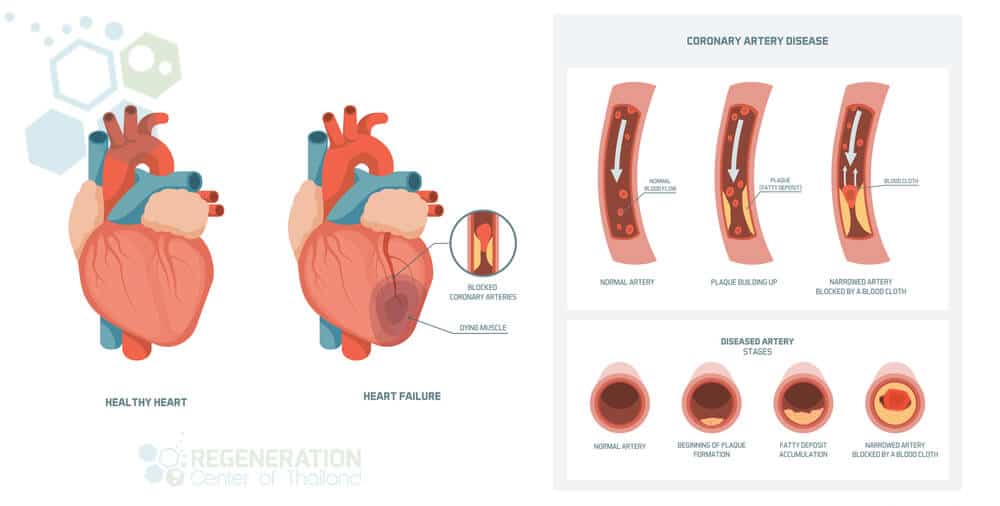Table of Contents
Damage to the heart muscle mass from minimized blood circulation. Weakening of the heart muscular tissue. Conventional treatments manage signs and sluggish illness development but rarely address the origin issuedamaged heart cells. This is where supplies brand-new hope, targeting the underlying damages and promoting lasting repair work. stand for a cutting edge step in dealing with cardio conditions.

At, we focus on a customized technique to. Our process includes: We begin by completely examining each client's medical background, existing heart feature, and overall wellness. This consists of sophisticated analysis imaging and screening to identify the degree of heart damages. Our team creates a tailored plan making use of, ethically sourced and ready for optimum efficiency.
Numerous patients report much less tiredness, boosted breathing, and better physical stamina. By addressing the origin, stem cell treatment reduces the danger of future heart occasions. Our clinic is a leader in, integrating proficiency with caring treatment. Right here's what establishes us apart: Our team has years of experience in regenerative medicine, making sure the greatest level of care.
We combine stem cell therapy with corresponding therapies for extensive heart treatment. Every therapy strategy is personalized to deal with the one-of-a-kind demands of each client. One of one of the most typical inquiries we get is, While no therapy can assure complete turnaround, have actually revealed significant possibility to fix damaged tissues, decrease swelling, and boost general heart feature.
New hope for Atherosclerosis via regenerative medicine
Heart problem is a leading root cause of in the USA and worldwide. In the United States alone, virtually 1 million people died as a result of heart disease in 2021 (the most current year for this details). Globally, that number increases to 17.9 million each year. For many individuals, typical therapies supply hope and help.
Today, scientists focus on 2 primary kinds of stem cells: adult stem cells and beginning stem cells. While comparable, they're much from the same, and each has its benefits and drawbacks. Adult stem cells frequently originate from bone marrow, fat tissue, and even straight from the heart. One benefit is that they can be collected from your own body.
Grown-up stem cells are likewise less complicated to accumulate and have less ethical problems. But there's a drawback. They're not as versatile as beginning stem cells. They aren't as able to develop into various kinds of cells, which can restrict effectiveness when it pertains to cells fixing. Embryonic stem cells can turn into any type of cell, consisting of heart cells.

However, there are some moral debates around their use, as they're derived from early-stage embryos. Plus, there's a greater threat of immune denial since they're not from your own body. One more issue is the possibility of creating growths if these cells do not distinguish appropriately after implantation. The huge question is, does stem cell therapy in fact help heart repair service? The short response is that it has a great deal of capacity, however it's still a creating field.
Researchers are still figuring out the best methods to supply the cells, ensure they make it through as soon as inside the body, and make certain they incorporate properly with existing heart cells. One of the biggest difficulties is cell survival and assimilation after implantation.
Regenerative injections targeting Heart Failure — what to expect
Even less take care of to incorporate into the existing heart tissue. For the treatment to be reliable, the new cells need to get in touch with the old ones and start working as component of the heart muscle mass. But obtaining them to do that is difficult. Problems like swelling, immune rejection, and the extreme environment of a broken heart can all cause troubles.
It's one point to get stem cell treatment to work in a lab or a little medical trial; it's one more to make it offered widespread. Producing, keeping, and supplying stem cells safely and properly is logistically challenging at ideal. Stem cell treatment is really appealing, yet it's not without drawbacks.
This is even more of an interest in beginning stem cells, however it's present despite having adult cells. Another negative aspect is the expense. Stem cell treatment is expensive, partially due to the complexity of harvesting, growing, and supplying the cells. Due to that expense and the therapy's experimental nature, several insurance business won't cover it.
In the last numerous years, there has been a substantial innovation in stem cell treatment for heart disease. Can stem cell therapy cure heart condition?
Understanding stem cell therapy for High Blood Pressure
Medical professionals treat heart failure symptoms in hopes of enhancing the individual's lifestyle and avoiding further issues. Medicines like diuretics (to get rid of the liquid in the body), Beta-Blockers (decreasing the pressure of the blood circulation and slowing down the heartbeat down to reduced blood pressure), and ACE Preventions (lower blood stress by kicking back the blood vessels and arteries) are used to treat the signs and symptoms of heart problem.
These need a surgery and a healing time of up to six weeks. While current therapies handle the symptoms of heart problem, they do not repair cells damage or restore the heart's feature. There is no remedy for heart illness. The question stays, can stem cells cure cardiovascular disease? Stem cells can not cure cardiovascular disease, however they can rejuvenate the heart muscle mass and boost the ejection portion (the amount of blood the heart pumps with each beat) on the heart's left side.
Navigation
Latest Posts
New hope for Heart Failure using stem cells
Breakthroughs in stem cell therapy for Heart Disease — what the science says
New hope for Arrhythmias using stem cells